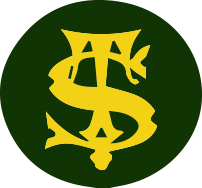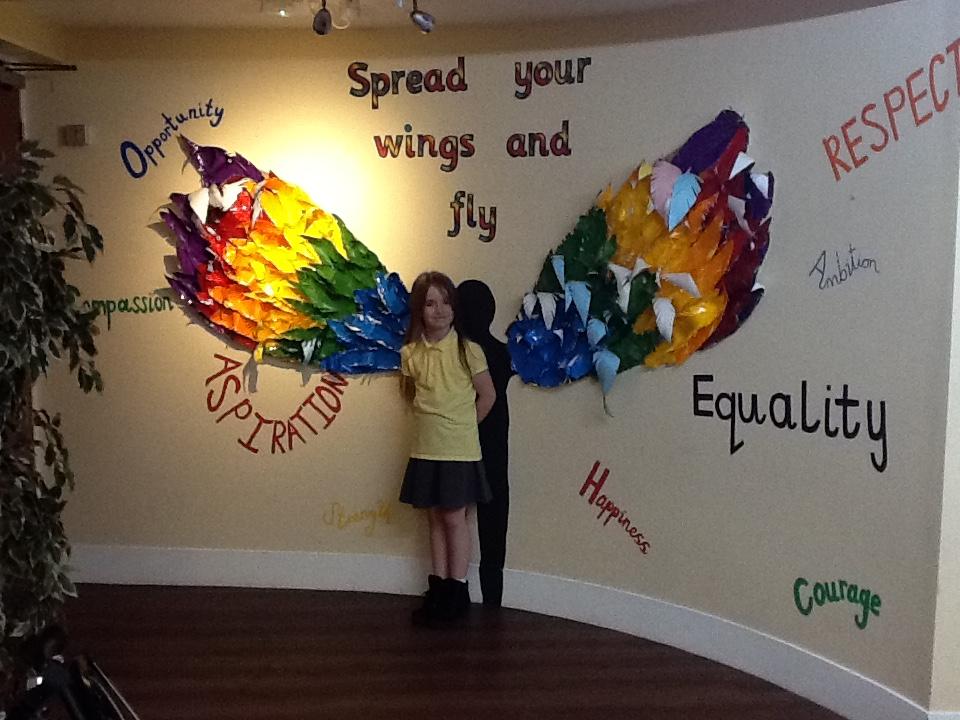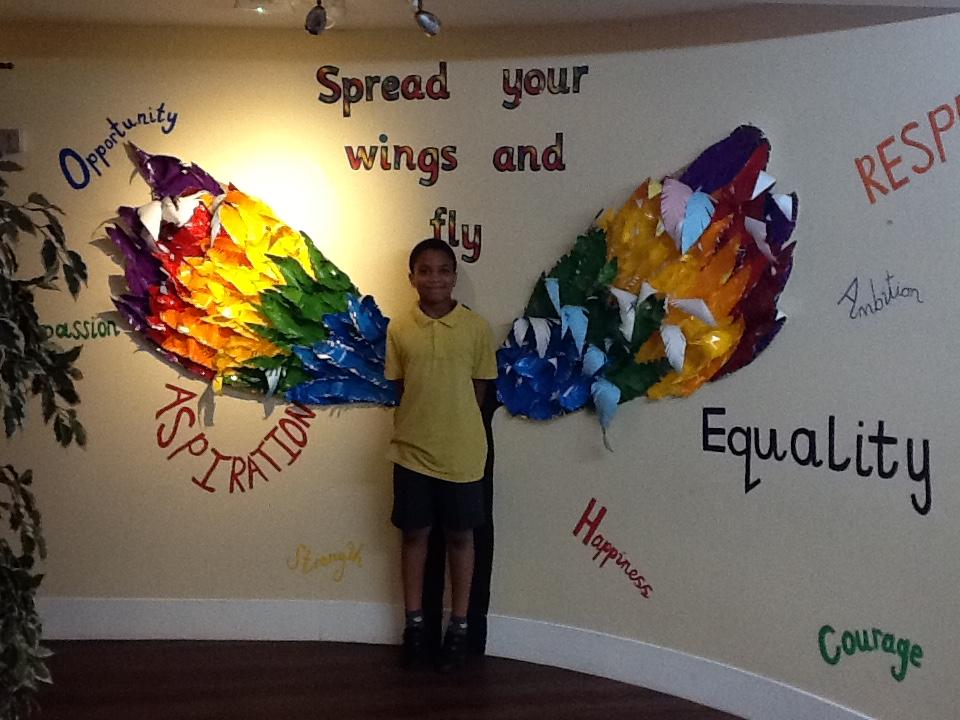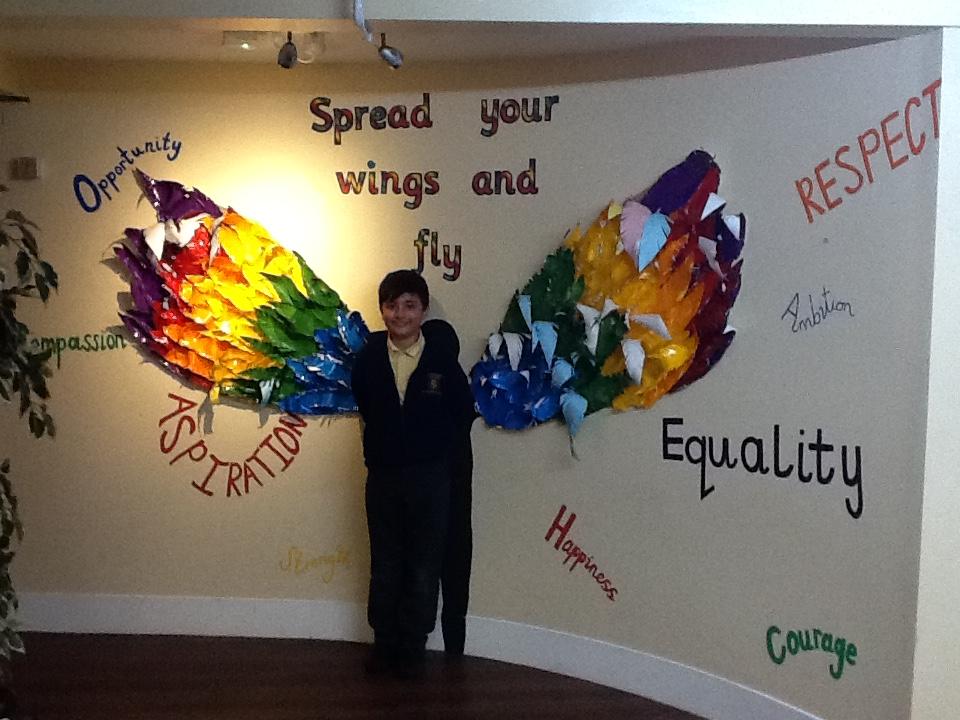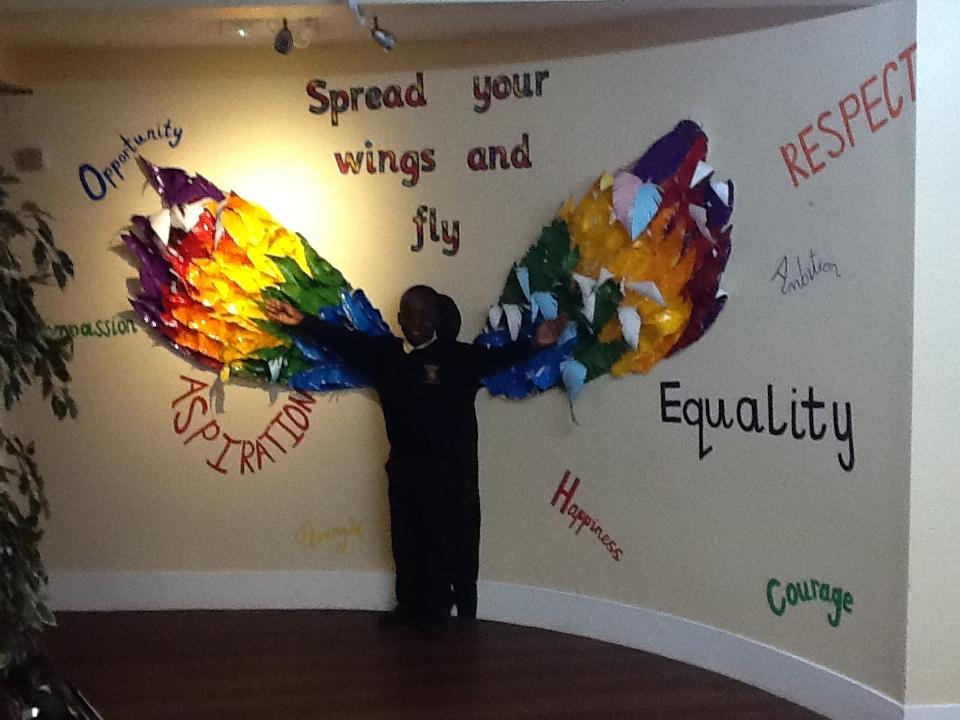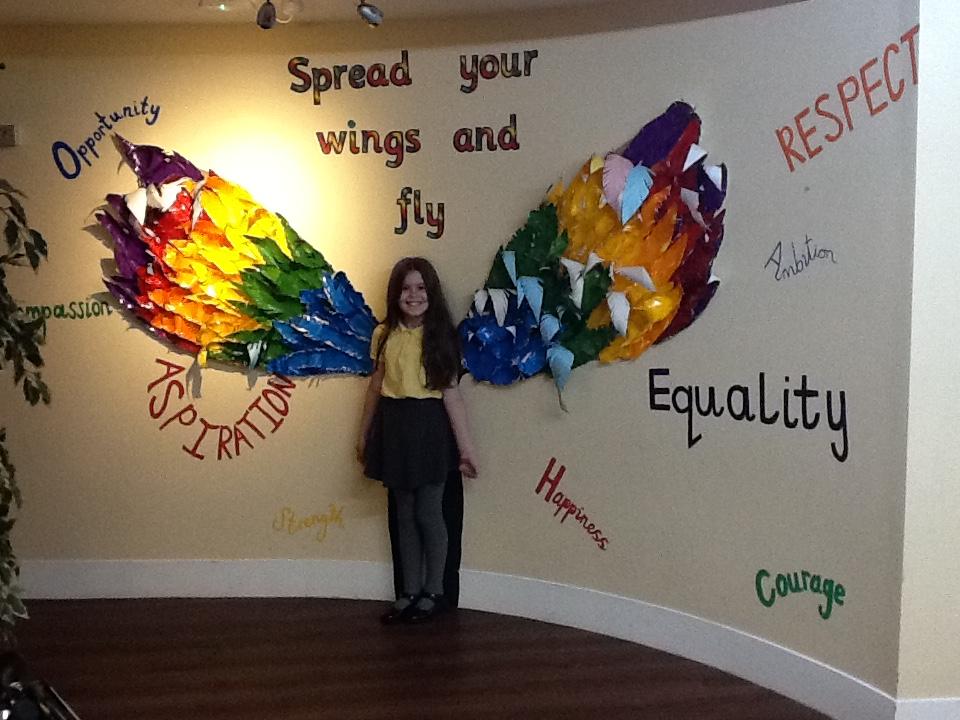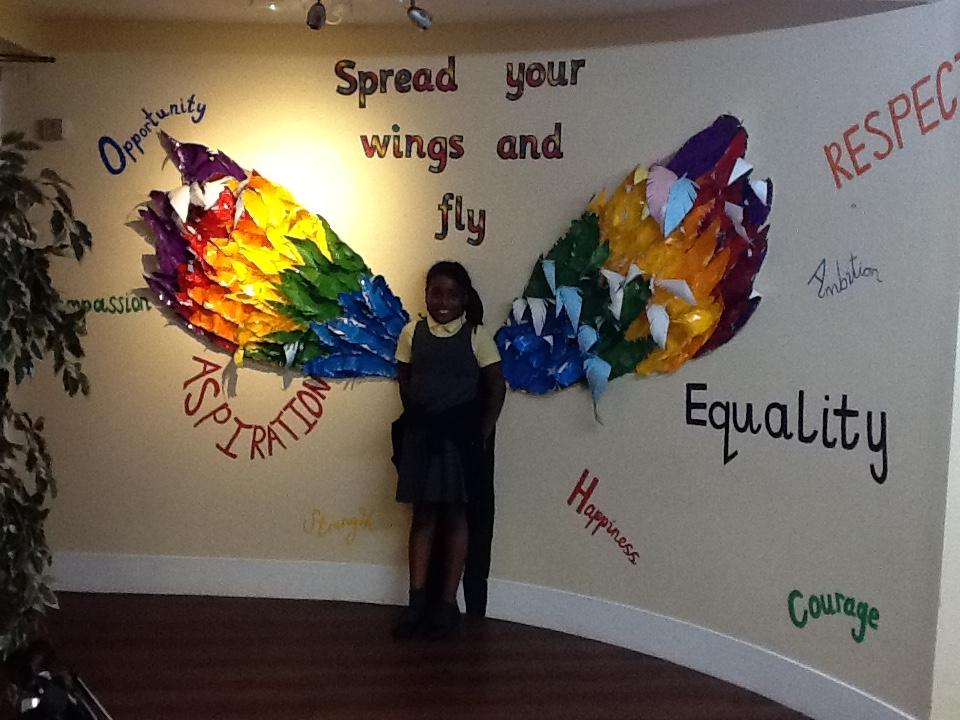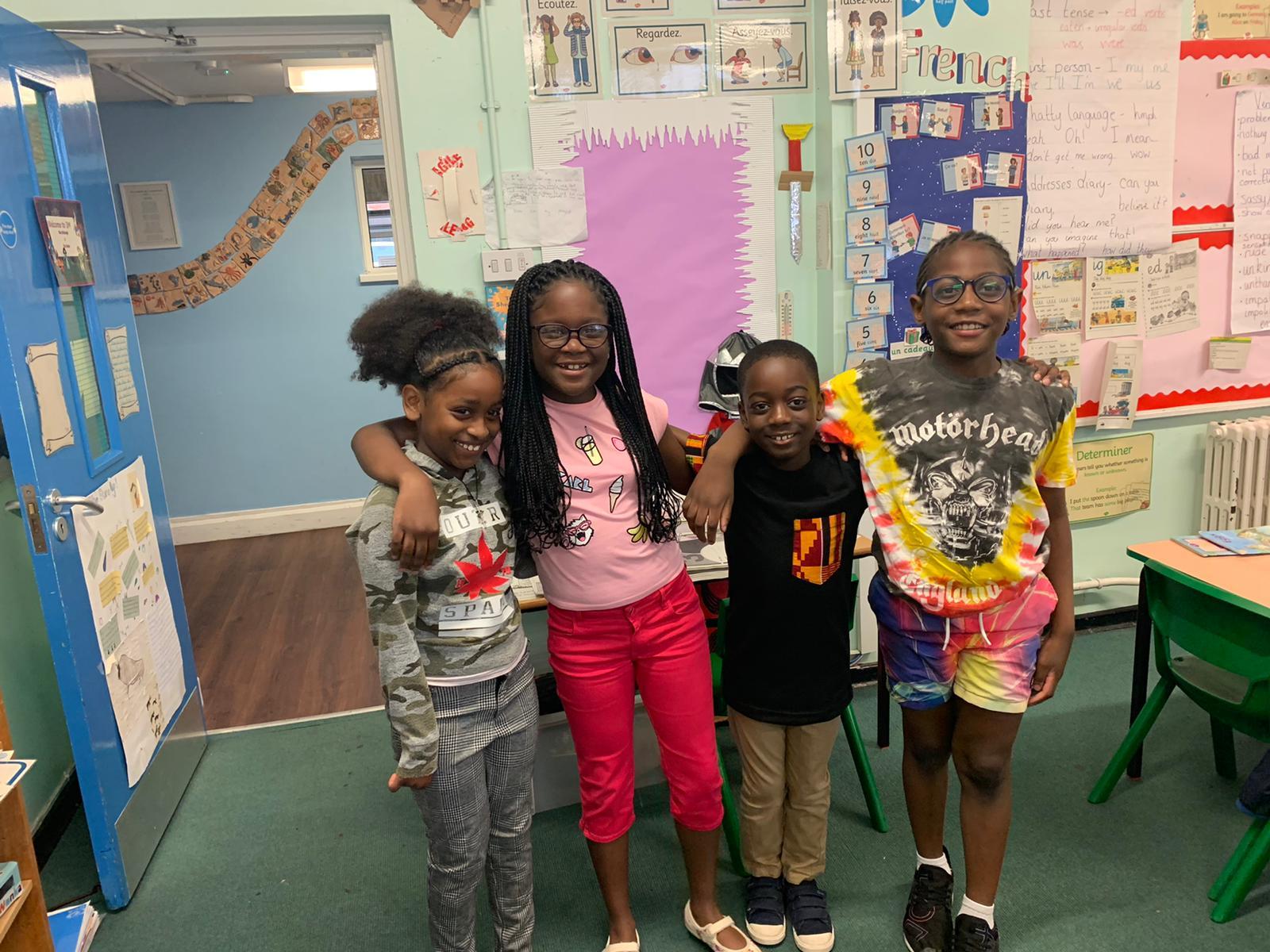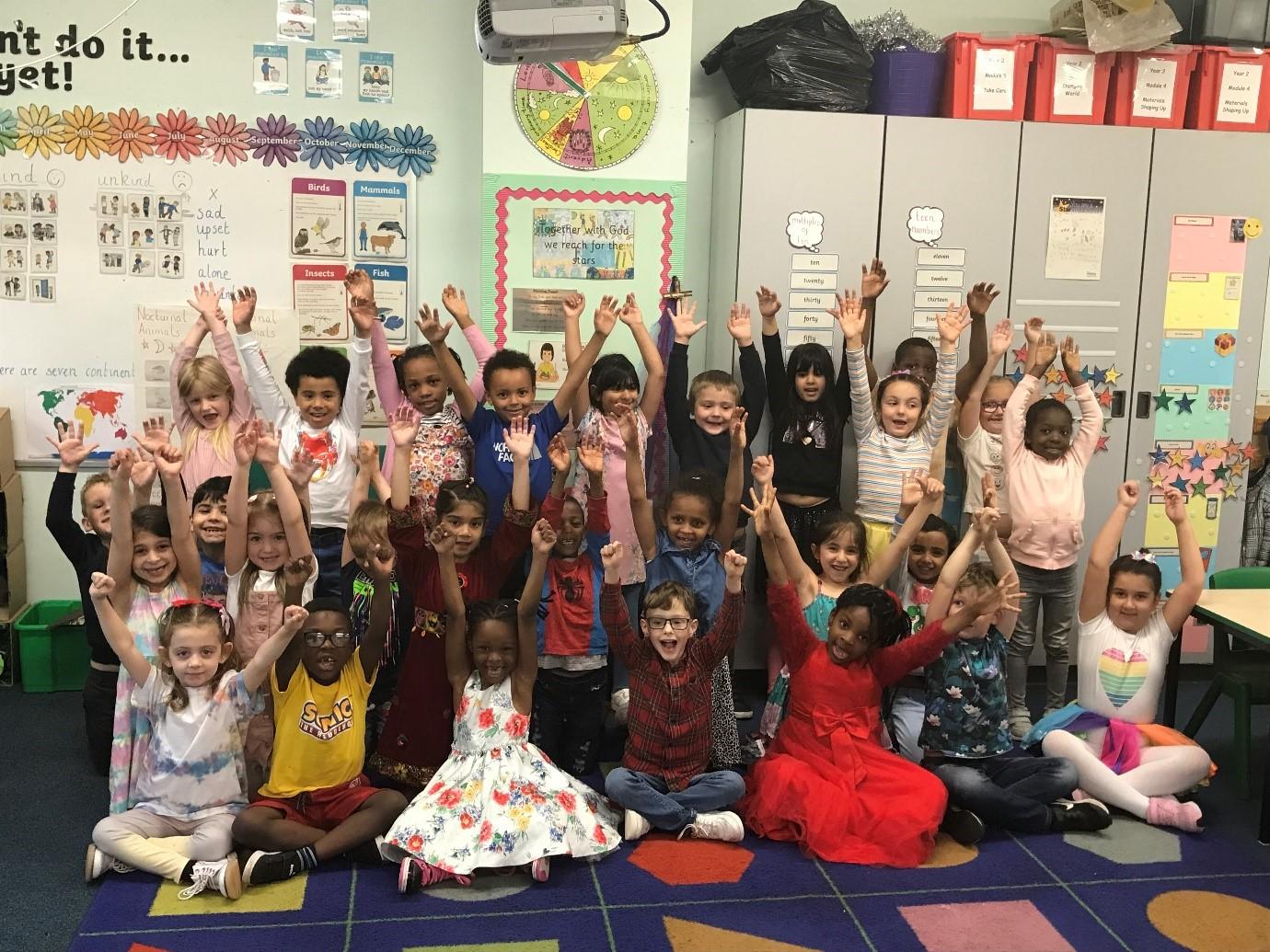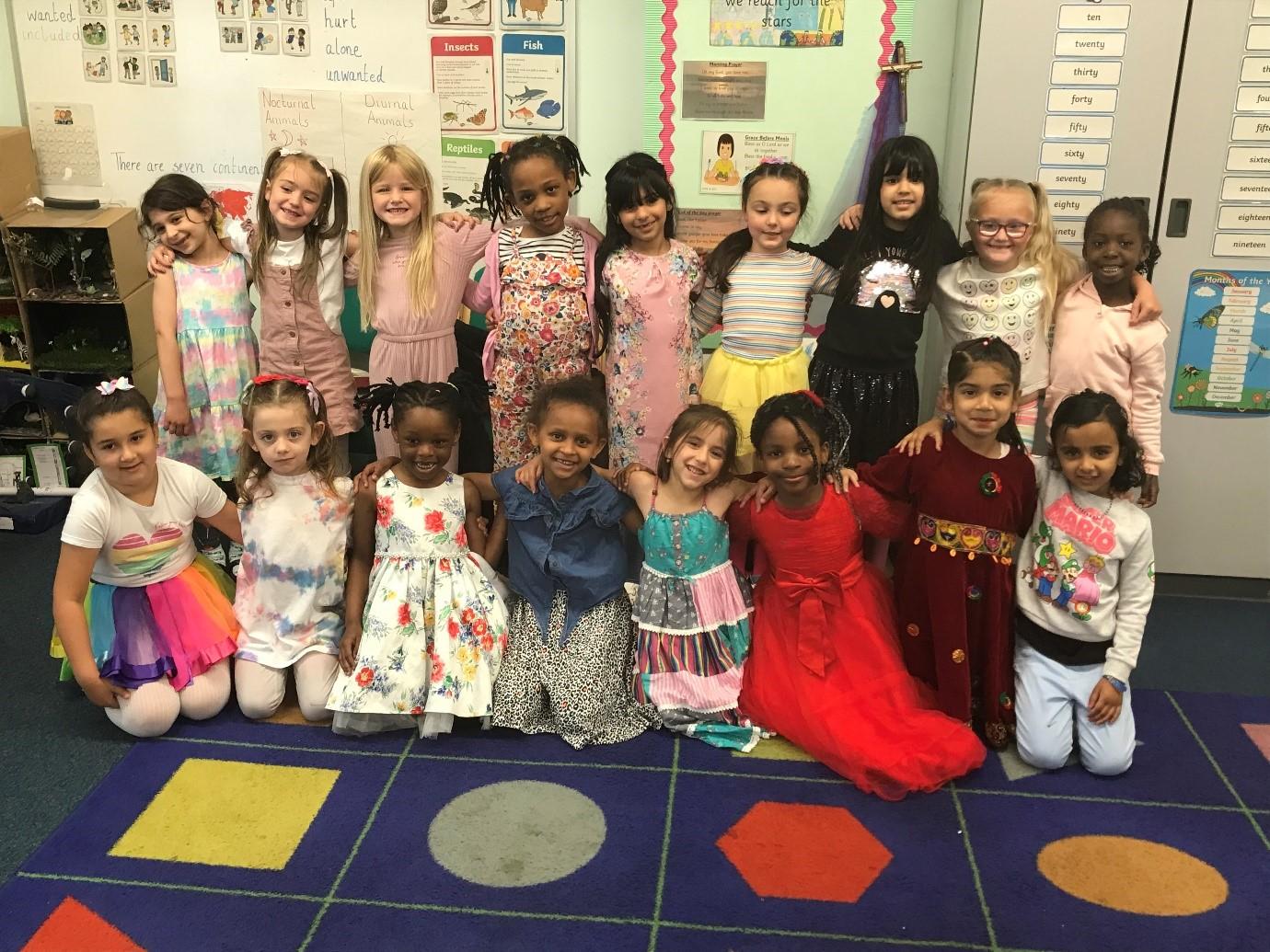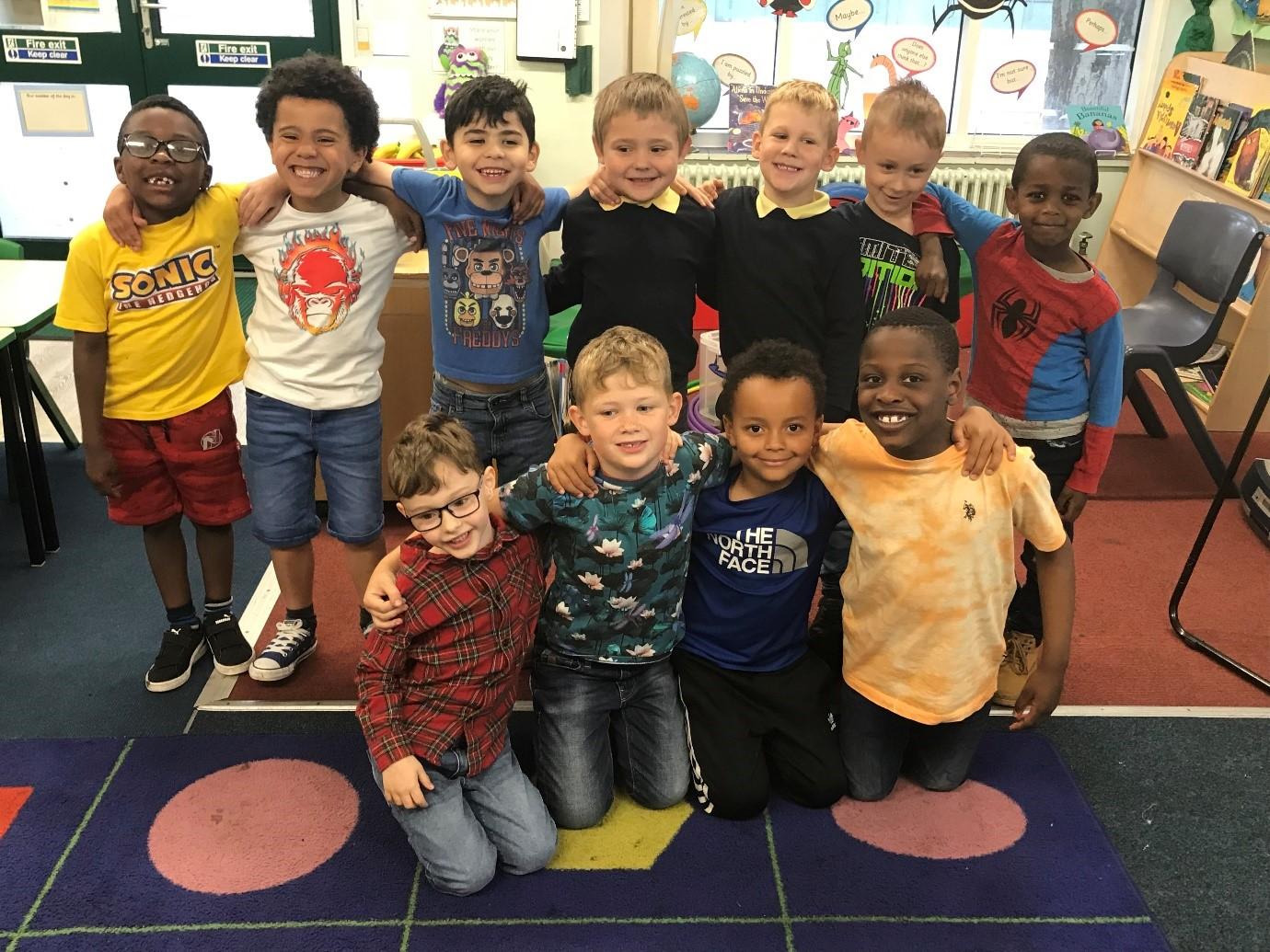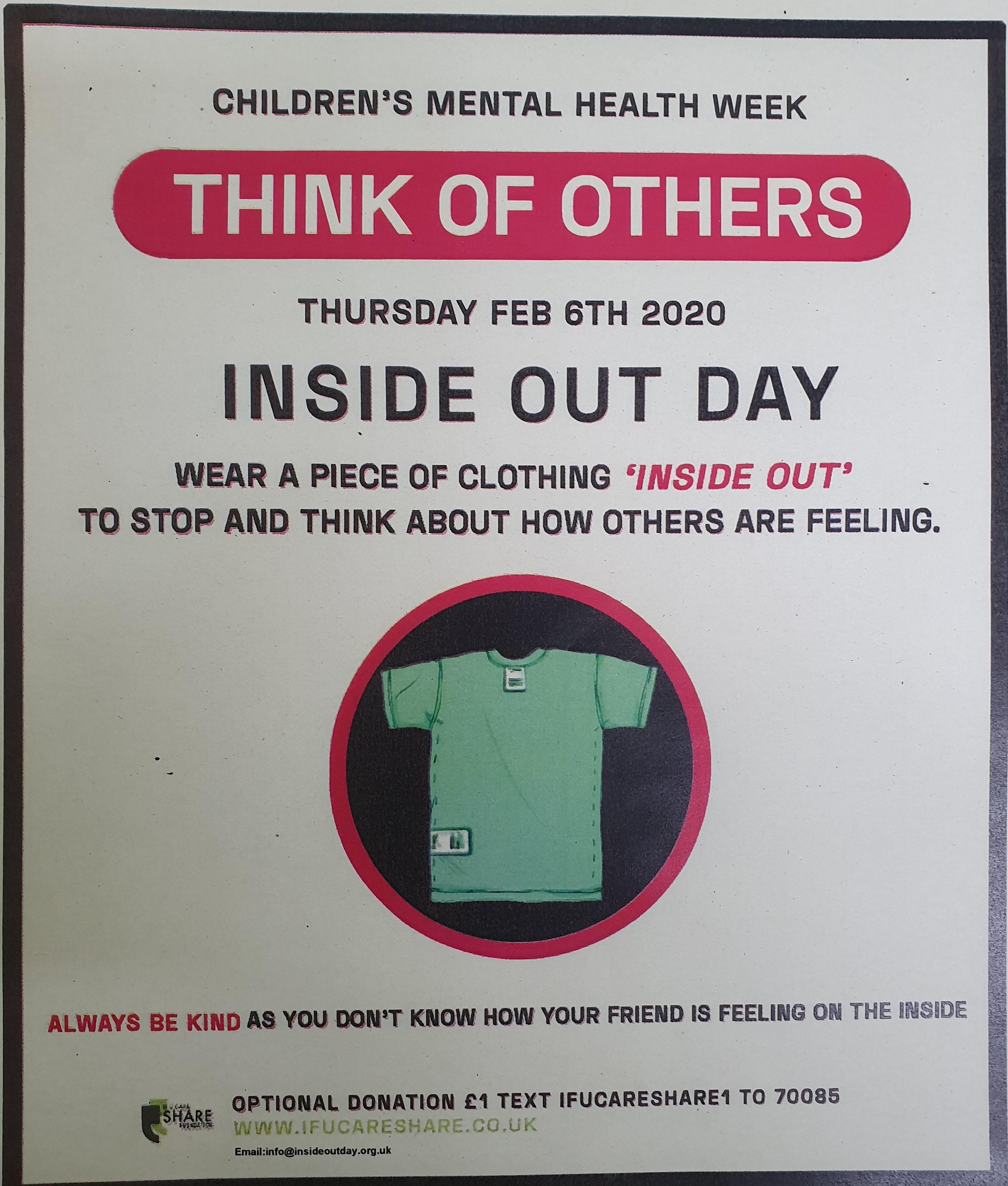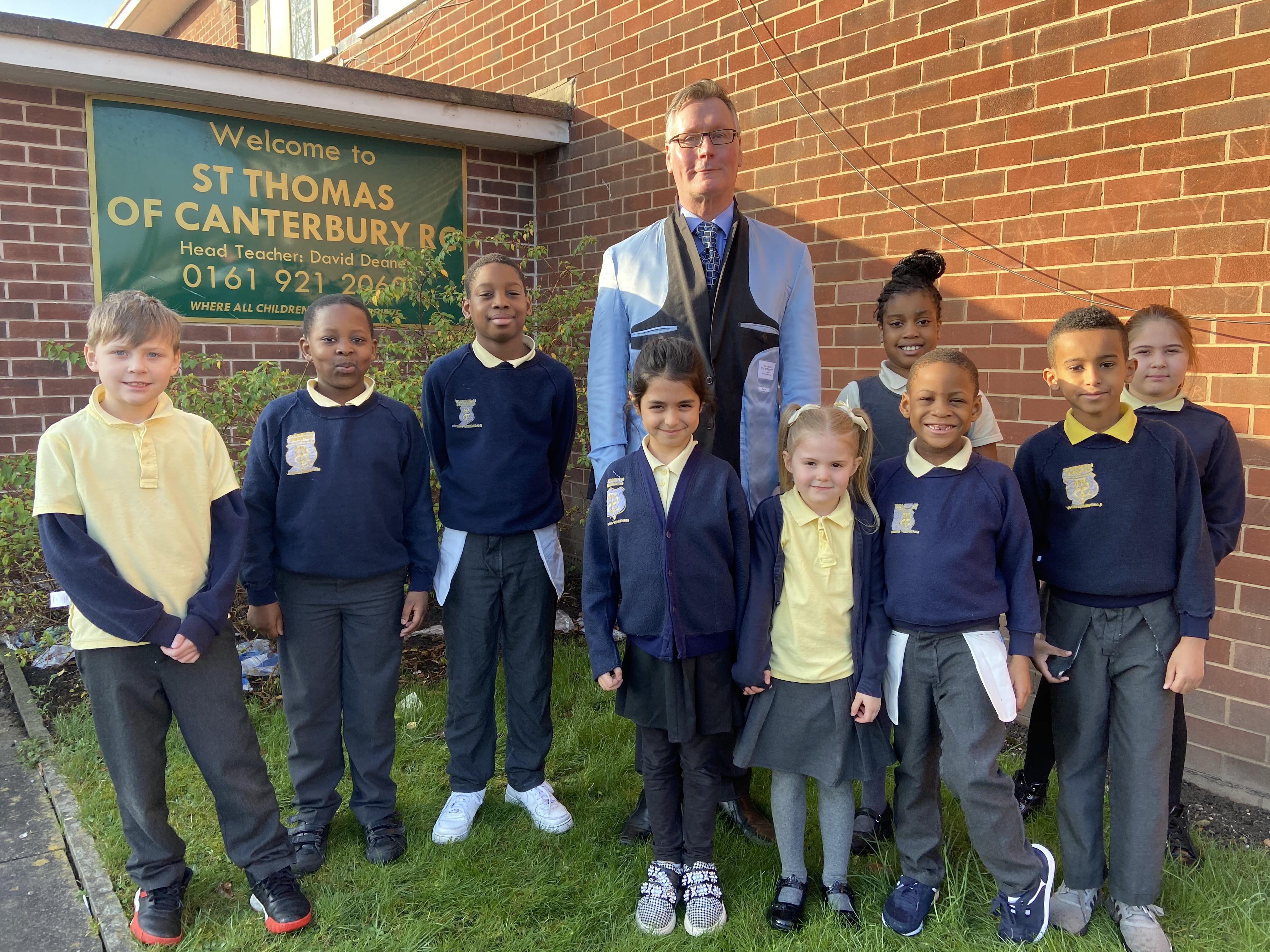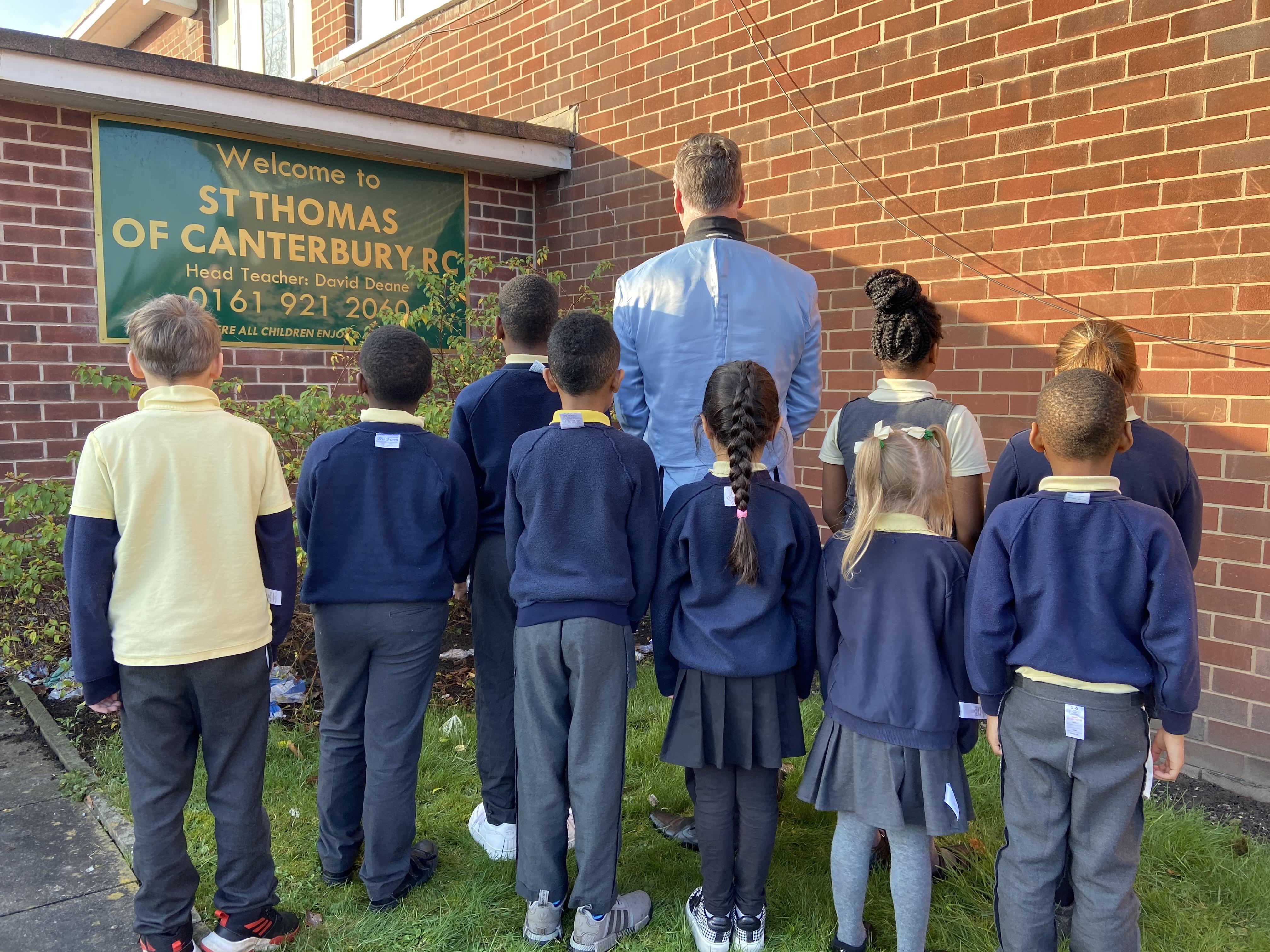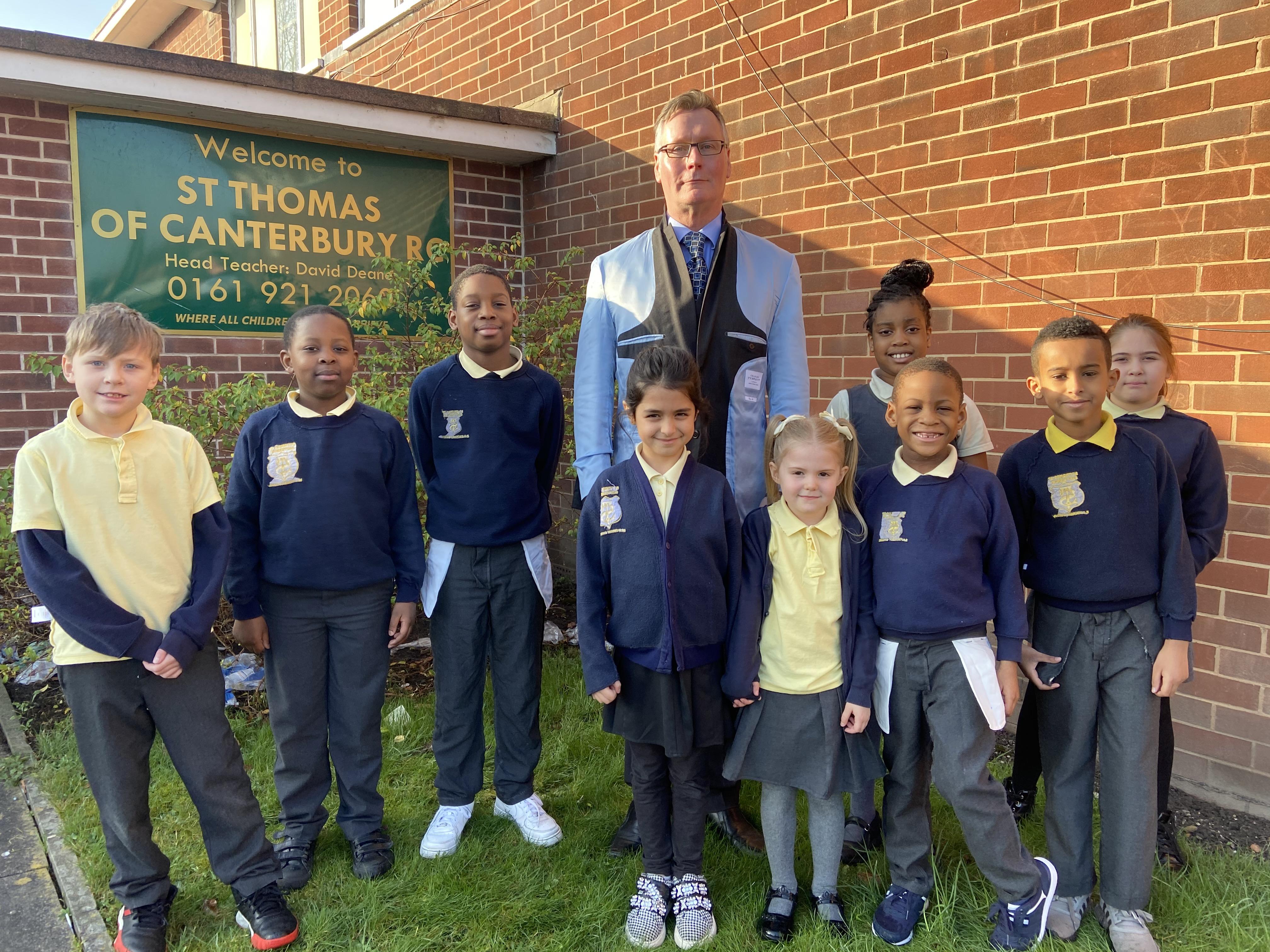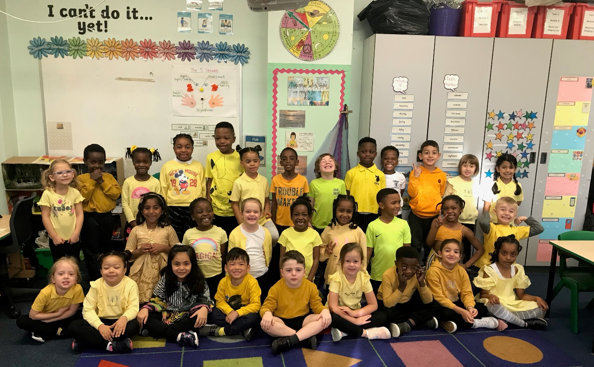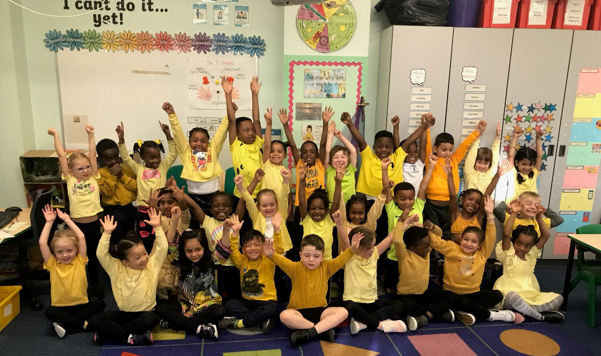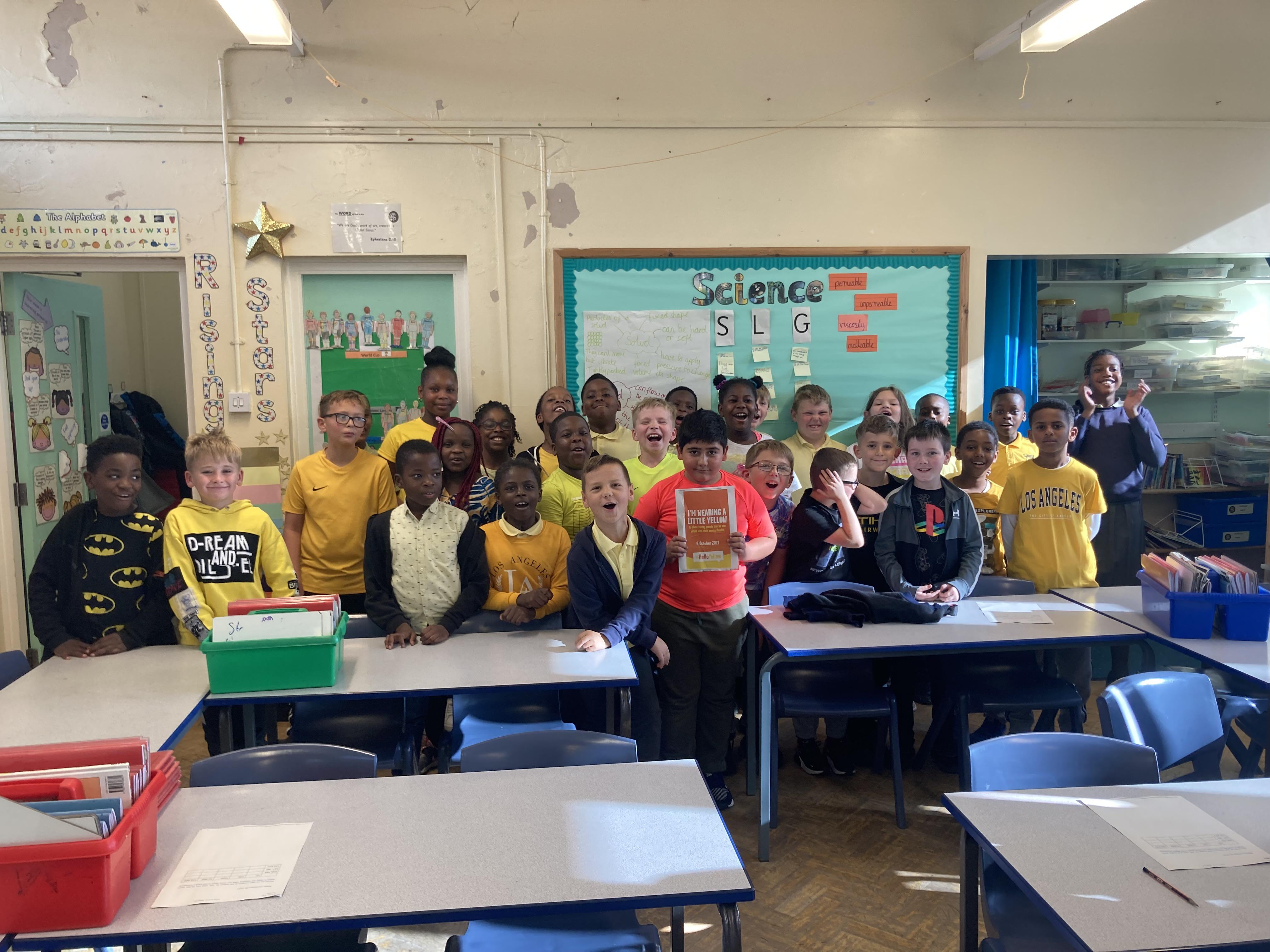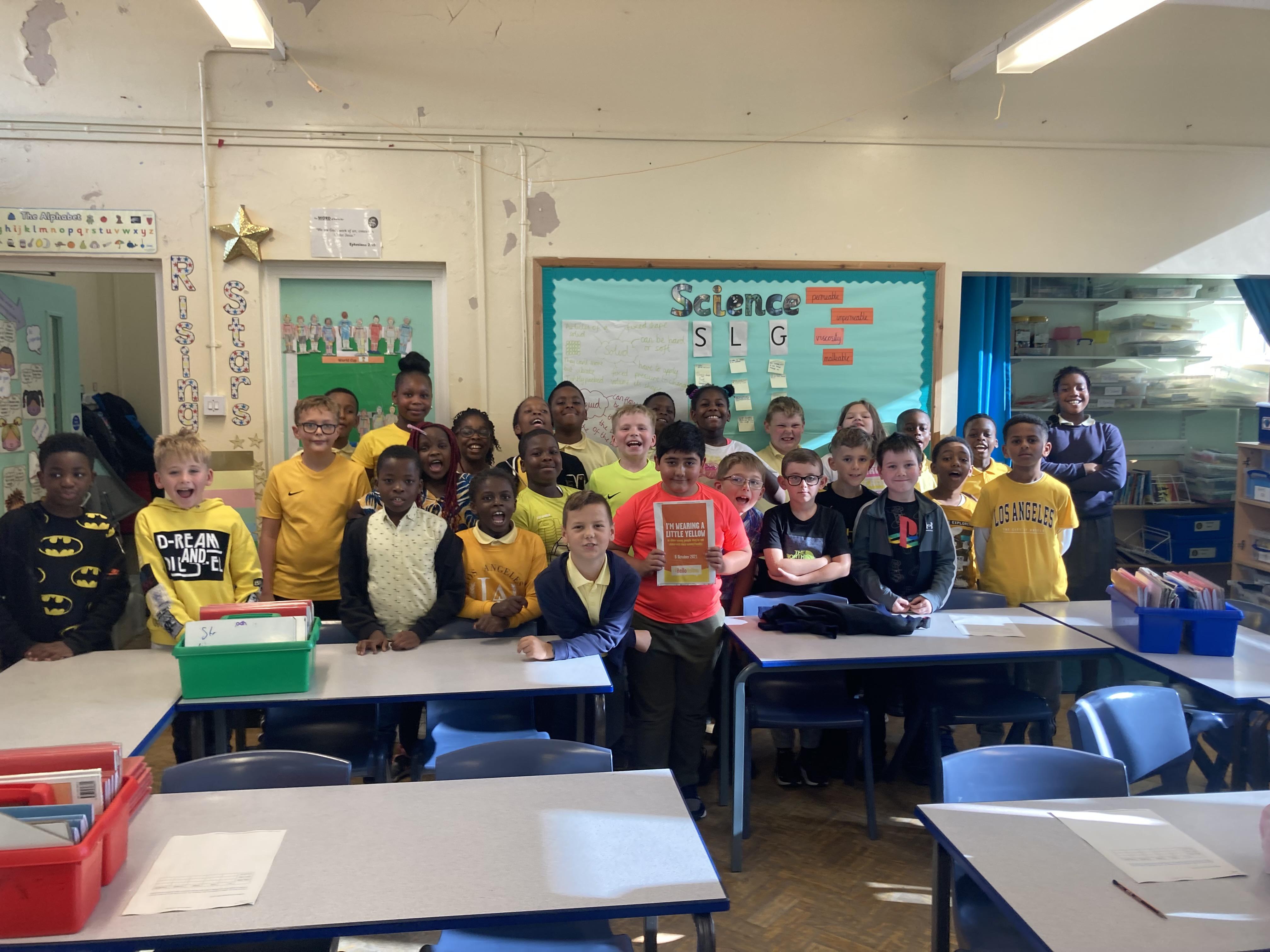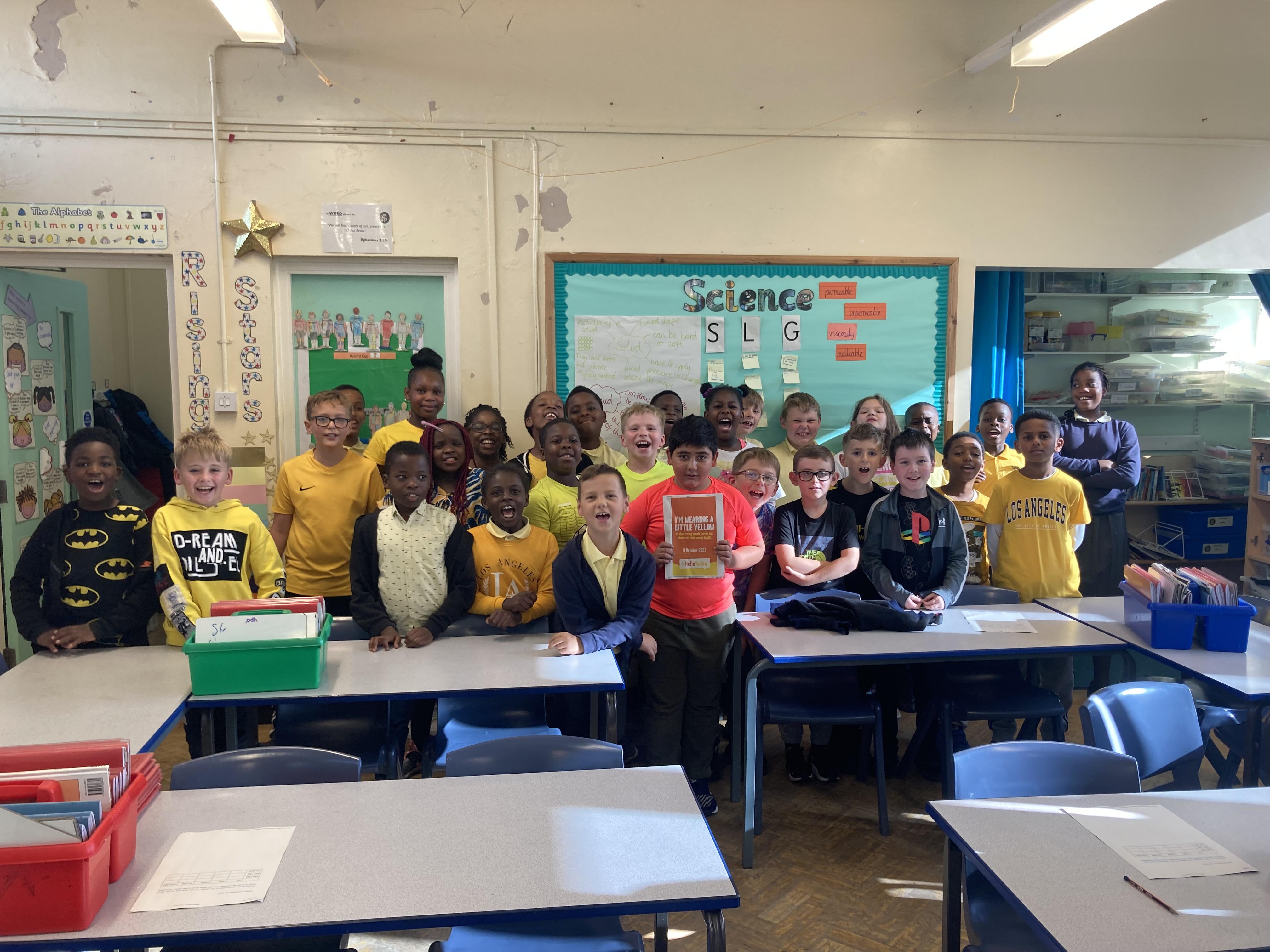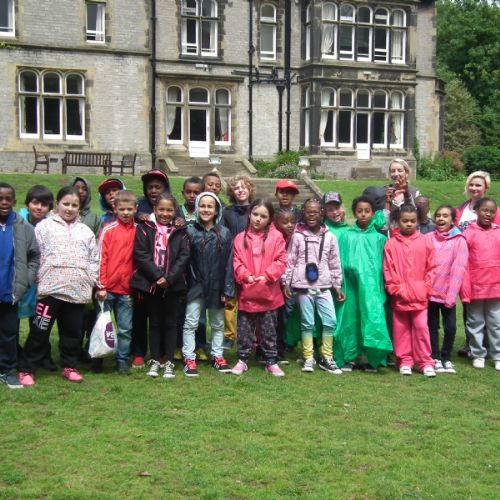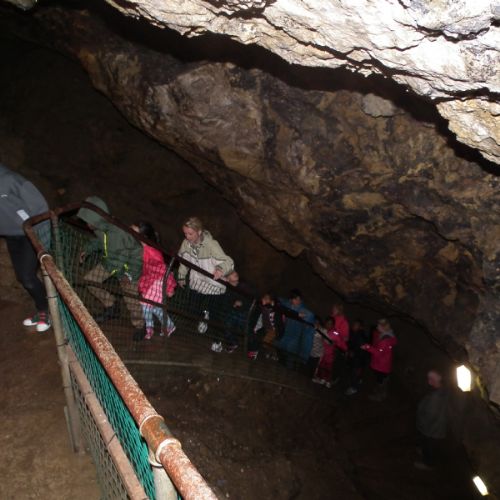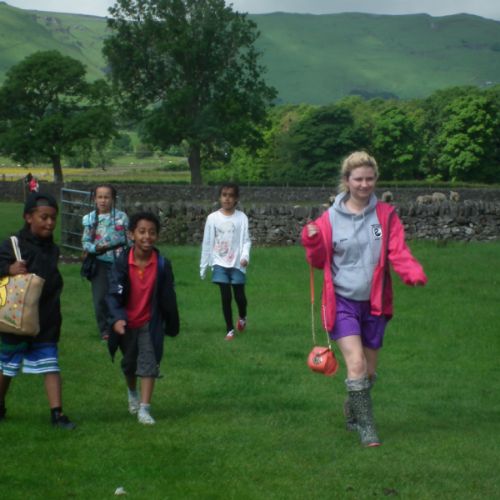PSHE

“Then Peter came to him and said, ‘Lord, if another member of the church sins against me, how often should I forgive?’ Jesus said to him, ‘Not seven times, but, I tell you, seventy-seven times.’”
Matthew 18.21-22

At St Thomas of Canterbury, we understand that pupils must be provided with an education that prepares them for the opportunities, responsibilities and experiences of adult life. A key part of this relates to relationships and health education, which must be delivered to every primary-aged pupil. Primary schools also have the option to decide whether pupils are taught sex education.
Relationships education focuses on giving pupils the knowledge they need to make informed decisions about their wellbeing, health and relationships, and to build their self-efficacy. Health education focusses on equipping pupils with the knowledge they need to make good decisions about their own health and wellbeing.
Our belief in the unique dignity of the human person as made in the image and likeness of God underpins the approach to all education in our school. Our approach to relationship and sex education therefore is rooted in the Catholic Church’s teaching of the human person and is presented positively and prudently.
Stemming from this vision of what it means to be human, we seek to educate the whole child: spiritually, intellectually, morally, emotionally, psychologically, and physically towards our understanding of Christian maturity.
Following guidance from our own Bishop and Diocese, the Conference of Bishops of England and Wales and as advocated by the DFE, all relationship and sex education in our school will be firmly embedded in the Religious Education framework as it is concerned primarily with nurturing the human wholeness of our pupils.
All relationship and sex education will be in accordance with the Church’s moral teaching. It will emphasise the central importance of marriage and the family whilst acknowledging that all pupils have a fundamental right to have their life respected whatever household they come from and support will be provided to help pupils deal with different sets of values.
It is our understanding that any teaching about love and sexual relationships in a Catholic school must be rooted in the Catholic Church’s teaching about what it is to be truly human in Christ, what it means to live well in relationship with others and be presented within a positive framework of Christian virtue. In accordance to advice from the CES, we will speak about Relationship and Sex Education (RSE) rather than Sex and Relationship Education (SRE), since this emphasises the importance of healthy relationships to human well-being, as the core learning within an RSE curriculum.

According to the National Curriculum, personal, social, health and economic (PSHE) education is an important and necessary part of all pupils’ education.
At St Thomas of Canterbury, we aim to nurture happy, well rounded, independent and successful young learners. PSHE runs at the heart of the school curriculum, with all subjects providing opportunities for children to develop their spiritual, moral, social and cultural development and prepare for the opportunities, responsibilities and experiences of adult life.
Miss Leveridge (Reception), Miss Lyimo (Year 4) and Miss East (Nursery) have been leading this subject together for 4 years. Together, we have created our own scheme using a combination of PSHE association, Life to the Full (Ten Ten resources) and No Outsiders. Our scheme follows the national curriculum guidance, as set by the government.
The PSHE association is a government-funded scheme dedicated to supporting children’s physical and mental health, relationships, careers and economic wellbeing.
It states that during key stages 1 and 2, PSHE education offers both explicit and implicit learning opportunities and experiences which reflect pupils’ increasing independence and physical and social awareness, as they move through the primary phase. PSHE education helps pupils to manage the physical and emotional changes at puberty, introduces them to a wider world and enables them to make an active contribution to their communities.
Life to the full is a Relationships and Health Education (RHE) scheme for primary schools, which embraces and fulfils the new statutory curriculum. It helps school communities grow in faith, love, understanding and compassion by creating a wide-range of unique media-rich programmes and resources, inspired by our Christian faith.
No Outsiders is a scheme which was created by Andrew Moffat MBE, who was nominated for the Global Teacher Prize in 2018-19. No Outsiders has three core values:
- Respect for diversity through education in schools;
- Commitment to community cohesion through understanding and acceptance of difference;
- Promotion of dialogue to counter fear and hate in society.
It involves the use of age appropriate story books to teach about seven of the protected characteristics of the Equality Act 2010. These include:
- age;
- disability;
- gender reassignment;
- race;
- religion or belief;
- gender;
- sexual orientation
Here at our school, PSHE and RSE is taught from years 1 through to year 6 for thirty minutes each week following the same structure. A key question is displayed at the start of each lesson and is revisited at the end. Learning is recorded in a ‘Big Book’ for PSHE via a selection of video clips, images, comments from the children and examples of work.
At the beginning of each lesson, previous learning and concepts are revisited using flashcards and key questions. The ‘Big Book’ is referred to during these revisit sessions to enable the children to recall the key learning of that lesson.
In each year group, children will learn about; Health and Wellbeing, Living in the Wider World and Relationships. They will cover themes from Life to the Full; Created and Loved by God, Created to Love Others, Created to Live in Community.

St Thomas has chosen six key themes that stem from Health and Wellbeing, Relationships and Living in the Wider World. These are:
- Rights and Responsibilities
- Feelings and Friendship
- Money
- Safety and Risk
- Health
- Identity
As a Catholic school, we incorporate three religious themes that run alongside our key themes. These are:
- Created and Loved by God
- Created to Love Others
- Created to Live in Community

Reading
Throughout the year, the children explore a range of literature linking to their PSHE themes and lesson content. The literature educates and brings attention to mindfulness, mental health, diversity, gender stereotypes, differing families, change and loss. They develop their reading skills through reciprocal reading of the literature, creating rich and deepened understanding. Topic specific vocabulary is taught as stated in the assessment document and is revisited through recall activities. As well as this, the children are exposed to text in a variety of formats during their PSHE lessons.
Inclusion
PSHE is taught sensitively and inclusively, with respect to the backgrounds and beliefs of pupils and parents while always with the aim of providing pupils with the knowledge they need of the law. We build on what pupils learn at home as an important part of delivering a good education.
Character development
The Department of Education state that today’s children and young people are growing up in an increasingly complex world and living their lives seamlessly on and offline. This presents many positive and exciting opportunities, but also challenges and risks. In this environment, children and young people need to know how to be safe and healthy, and how to manage their academic, personal and social lives in a positive way.
Our Personal, Social, Health and Economic Education scheme enables children to become healthy, independent and responsible members of society. We encourage our pupils to play a positive role in contributing to the life of the school and the wider community. In doing so, we help to develop their sense of worth. We teach them how society is organized and governed. We teach them about rights and responsibilities. They learn to appreciate what it means to be a positive member of a diverse multicultural society. Children receive building blocks of healthy, respectful relationships, focusing on family and friendships, in all contexts, including online, along with the essential understanding of how to be healthy. They develop the understanding that mental wellbeing is central to these subjects, especially as a priority for parents is their children’s happiness.
Our children develop essential skills and attributes, along with virtues that will enable them to thrive in their Personal, Social, Health and Economic Education.


At St Thomas of Canterbury, PSHE plays a central role in the development of every child’s learning. In the Early Years, this is implemented through the teaching of the three prime areas: Personal, Social, and Emotional Development (PSED), Communication and Language (CL) and Physical Development (PD). These prime areas are fundamental building blocks for children to develop, creating a driving force behind helping children as they learn to form relationships, moderate emotions, and thrive in their day-to-day life.
Each September as the children settle into their new classes, both Nursery and Reception spend a large amount of time focusing on the development of each child’s PSHE skills. Some of these focuses are:
- helping children build strong relationships (with both children and staff),
- helping children to manage and regulate their emotions,
- encouraging children to become independent learners,
- helping children to develop their sharing and turn-taking skills and,
- helping children confidently separate from their parents/carers.
As well as targeting PSHE through the prime areas of the EYFS, Nursery and Reception also teach weekly sessions using the scheme ‘Think Equal’. ‘Think Equal’ is a holistic Early Years Programme that views children as individual parts of a collective. It aims to enhance children’s learning experiences at their earliest start, ultimately influencing children’s learning and development throughout their school life and beyond. To ensure this learning and development is taking place, ‘Think Equal’ focuses on six key learning areas. These are:
- I have a strong sense of who I am,
- I am able to look after myself,
- I am able to look after others,
- I am able to contribute and create,
- I am a critical thinker and,
- I am able to communicate.
All learning in the Early Years is recorded in our ‘Big Book’ for PSHE via a selection of images, comments from the children and examples of work.


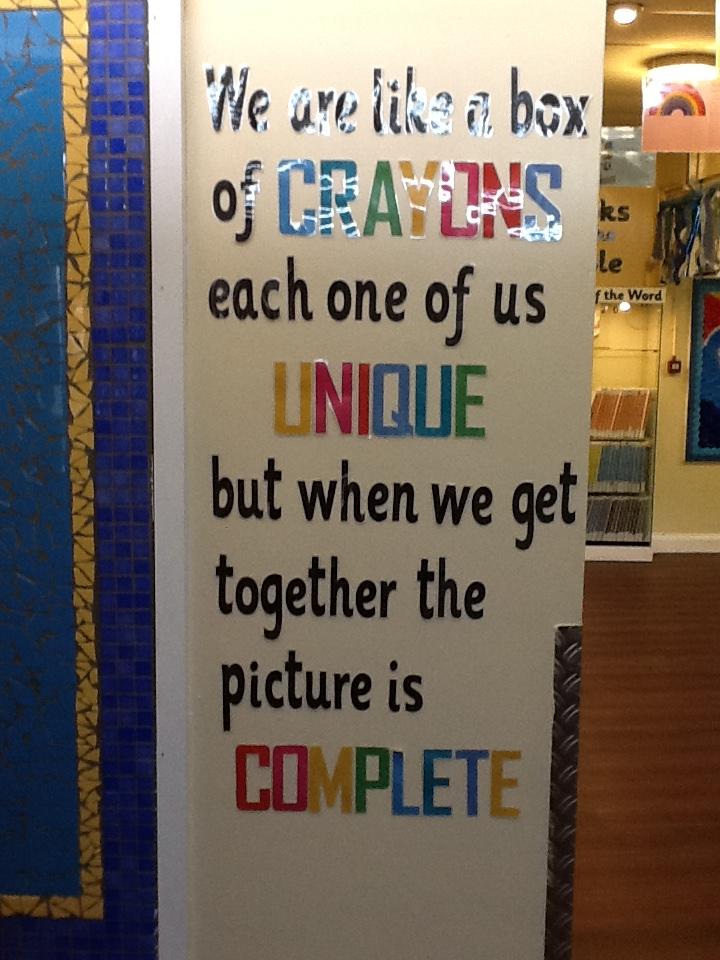
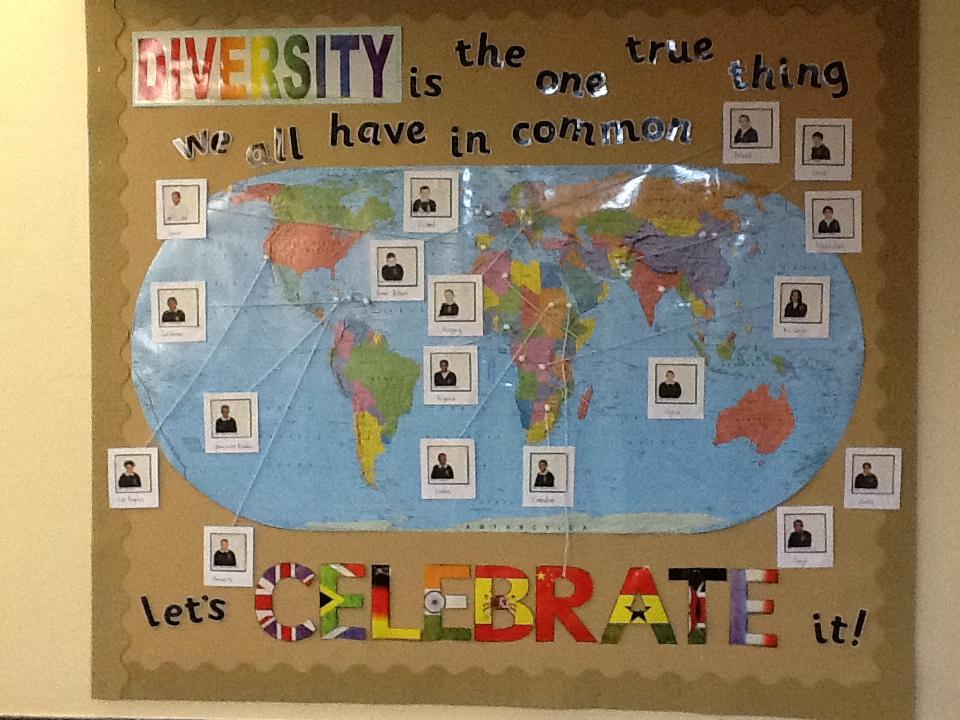
Rainbow Friday - Celebrating diversity
Johanna Novick said: “Mental health is one of the biggest challenges we face as a society. Social media can often disguise reality making everyone else look like they’re happy and leading wonderful lives, even when they’re not. We just want to let children know it’s Ok not to be Ok and that no-one is perfect (even though they may look it)."
On Inside Out Day we wore an item of clothing inside out as a way of making us all stop and think about how someone may look OK on the outside ��but inside they may be feeling sad or worried ��. We reminded ourselves to always be kind and think of others as no one knows how another person may be feeling. This will help us in tackling our current society’s mental health crisis and support this initiative.
'Inside Out' day
Every young person whose mental health ends up in crisis is a young person who has been failed. We know that the earlier young people can access the right help, the more likely it is that they can avoid these crises. We celebrated 'Hello Yellow' day to show young people they're not alone with their mental health. The more people who show they care, the more comfortable young people will feel about talking to someone if they're struggling.
Hello Yellow
Parental Involvement is key to learning at St Thomas of Canterbury. Over the last few years, we have developed a number of initiatives that aim to get parents into school and involved in their child's learning and development. These include the 'Stay and Play' sessions after each class assembly, where parents are invited to stay in school and participate in workshops planned by the class teacher. These have been hugely successful and feedback from parents has been very positive.

At St Thomas, we believe every child should have the opportunity to experience the wider world and community. In order to enhance learning in class, we organise class trips for every child each half term. These trips will be linked to topics and aim to enhance knowledge and understanding of the units of work that children will take part in.
The class trips are always a huge success, with positive feedback from children and parents. Members of the public often comment on the exemplary behaviour of our children when out of school. We are proud to take such wonderful children out on school trips!

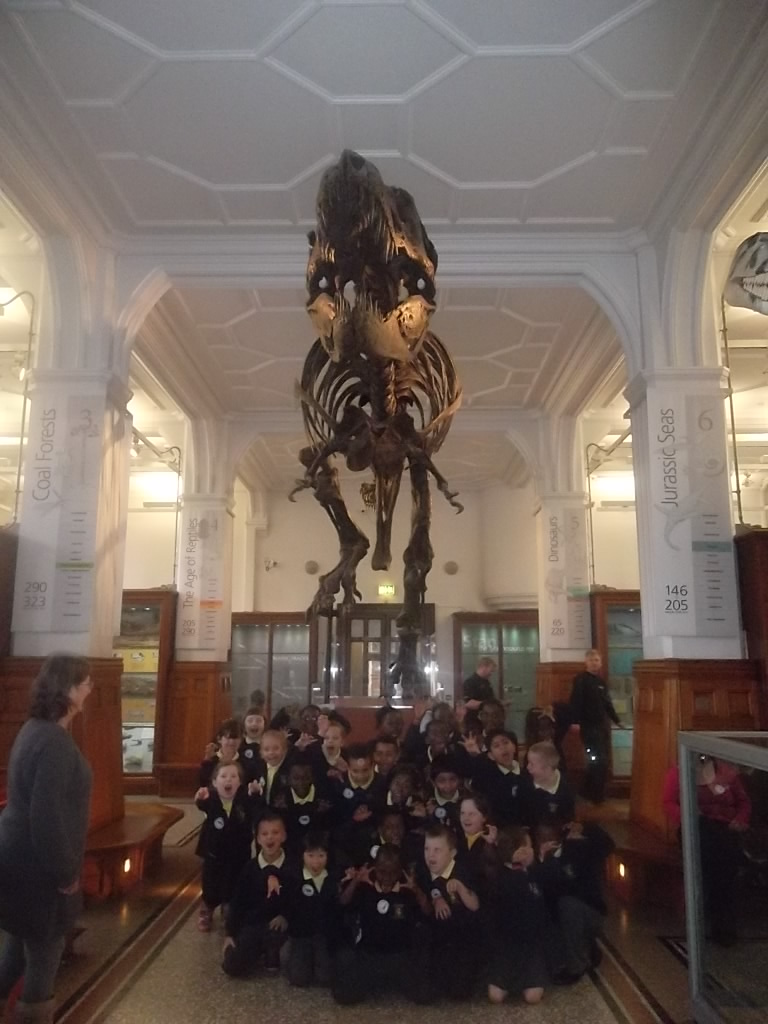
Residential visits play a key role in developing children's understanding of the wider world and our place within it. Year 4 visit Castleton and Year 5 visit our friends at Trevithick Primary in Cornwall. Each year, the children have a fantastic time experiencing activities that are not available in our local community.


The Educational Psychology Service have provided a list of useful videos and websites to help schools and parents to support children in talking about COVID-19 and their anxieties. They provide you will talking points, resources and advice on how to approach the subject and support your children in improving their mindsets.
Keeping our children (and ourselves) mentally well is important as in the last three years, the likelihood of young people struggling with mental health has increased by 50%. To help your children to take their minds away from the outside world, the following websites, videos and resources are available. As you are aware, exercise is a stimulus to both the mind and the body, therefore we recommend completing at least one of these activities a day. There are a range of useful websites out there for children struggling with mental health, some recommended ones are detailed below.
As children are entered into a world of technology and gaming, it can be quite daunting to know how long to allow them on their devices and how to filter content. Have a look at the following websites that offer advice for online chatting, gaming and safeguarding.

